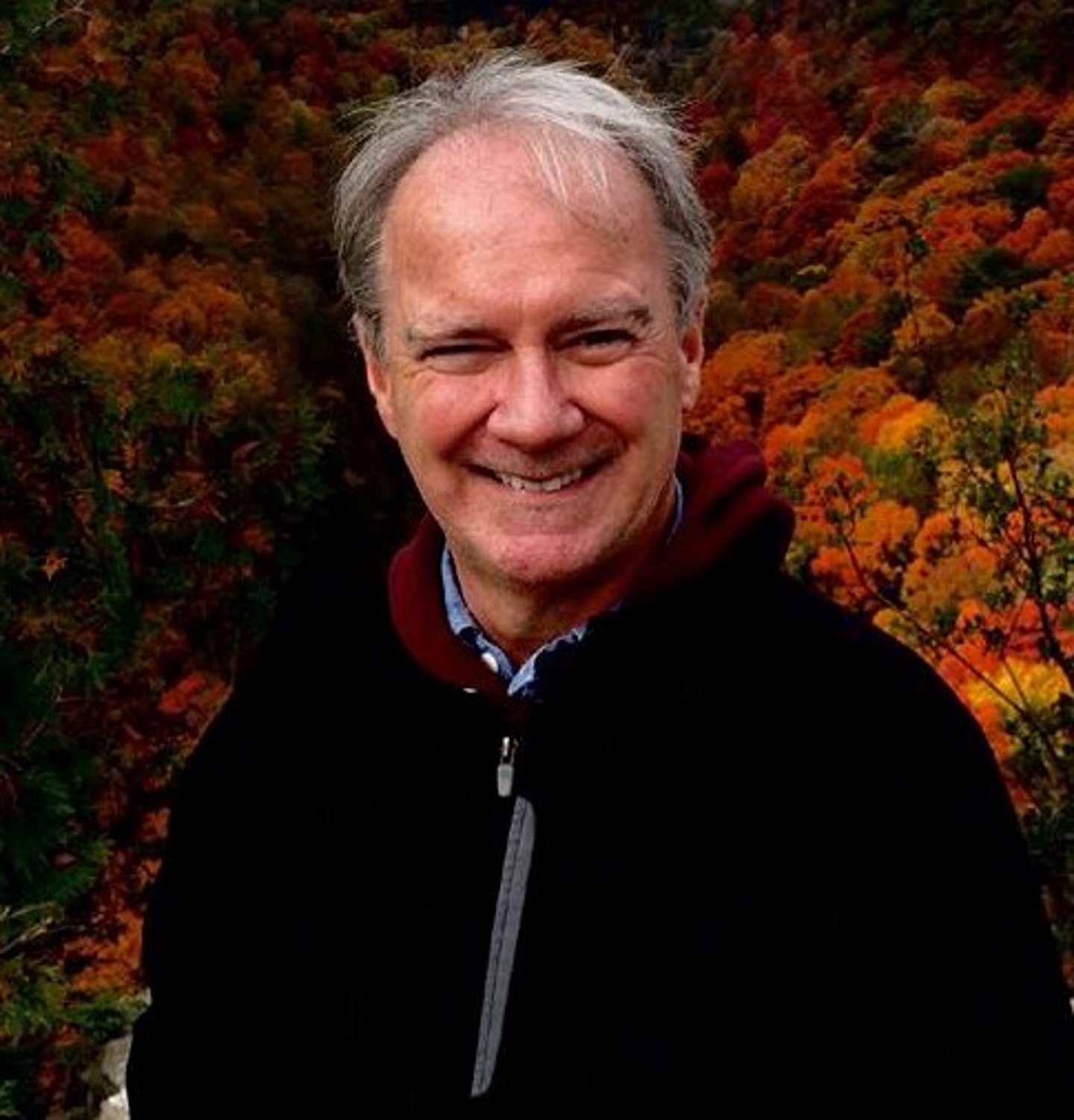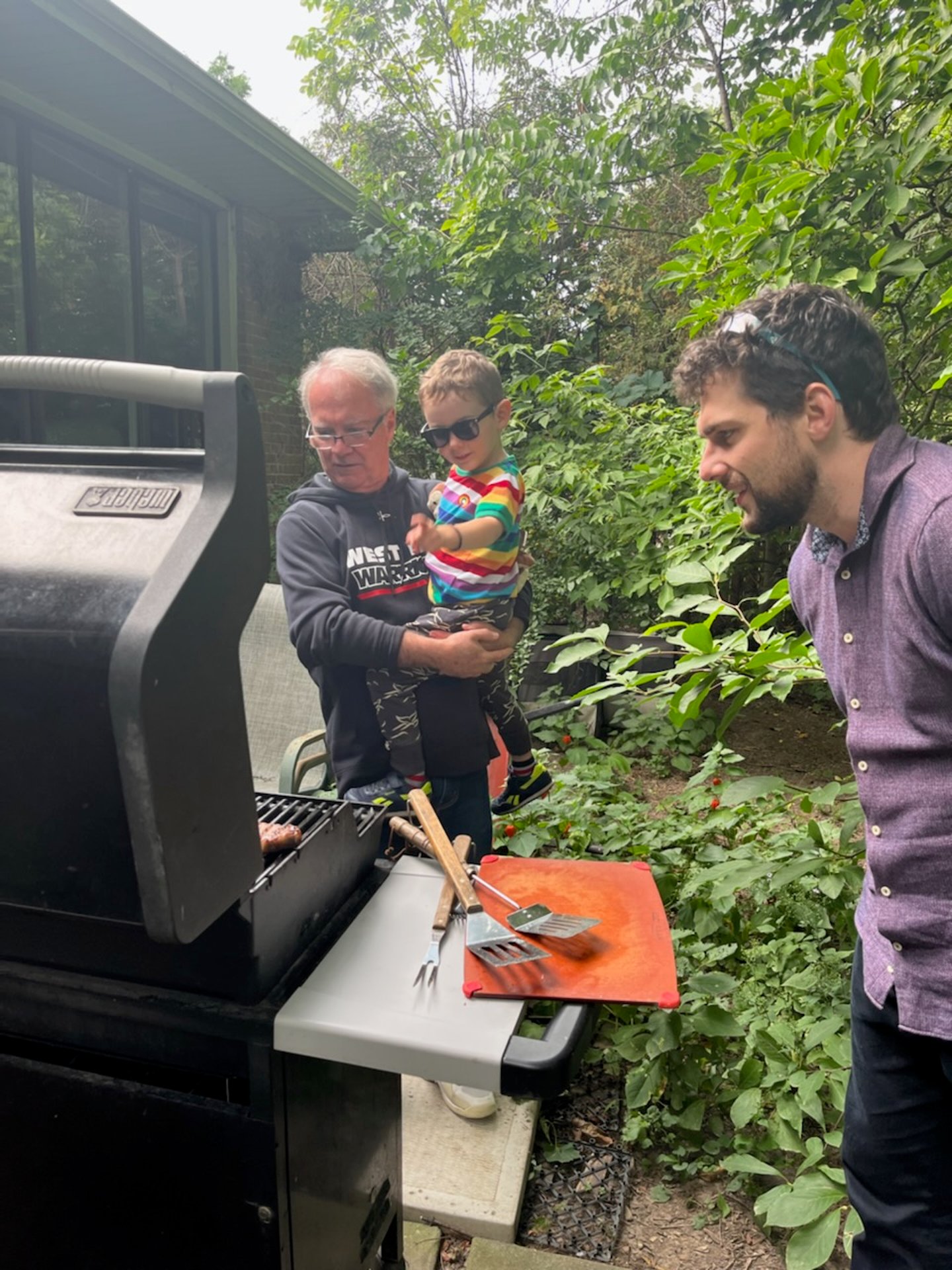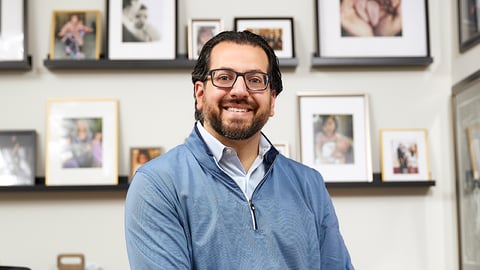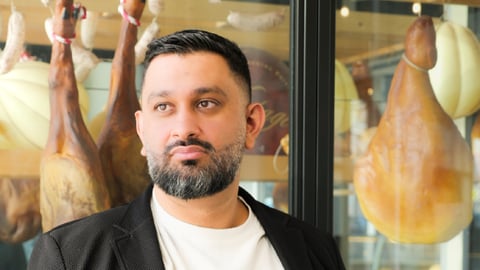How CFIG's Gary Sands Takes The Lead
Leading an organization is one thing, but shaping and advancing a critical industry? That’s quite another challenge altogether. It requires engaging with a wide range of stakeholders—not just other leaders and employees within the sector, but also government officials, regulators, the public, other industries and more. Effective leadership in this space means bridging diverse perspectives, driving meaningful conversations and ensuring that the industry’s voice is heard and understood at multiple levels.
That has been Gary Sands’ mission at the Canadian Federation of Independent Grocers (CFIG) for nearly 25 years—a milestone he’ll mark this August.
Through the ups and downs of the grocery industry, Sands, senior VP, policy and advocacy at the CFIG, has been a steadfast advocate for independents, a group of more than 6,900 businesses across Canada represented by the nonprofit trade association since 1962.
His advocacy extends to the current situation around U.S. tariffs, making the case that any solution aimed at reducing Canada’s reliance on our neighbour to the south include fair trade between provinces. (As expressed in his recent op-ed for the Toronto Star.)
“Many independent grocers operate in rural and remote communities, where the cost of receiving goods is already high. It’s important we recognize this fact, understanding tariffs will hit these communities harder than most,” Sands tells Canadian Grocer. “As a country as well as an industry, we need to ask: ‘What investments can we make to help lower transportation and distribution costs in these areas?’”
Catching up with Canadian Grocer, Sands—who previously served as a political chief of staff in government and helped oversee entities like Ontario Place, the Niagara Parks Commission, the Metro Toronto Convention Centre and OLG—shares his thoughts on leadership, having a clear vision and how time with his grandson reminds him of the bigger purpose behind his work.
What key trait defines a strong leader and advocate for an industry?
There are managers and there are leaders. Managers focus on operational areas. While a leader must pay attention to operations, of greater importance is that they have a vision and a passion to bring that vision to life—a vision you wholeheartedly believe in. If you do, you won’t find yourself adjusting, reshaping or compromising that vision based on the audience in front of you. Your words and actions will also remain aligned. It’s vital to show people how that vision benefits different groups. And so whether I’m speaking to members, industry partners, government officials or the media, my message stays the same: supporting independent grocers benefits everyone and the country. And I truly believe that. When your belief is genuine, it doesn’t sound like rehearsed talking points—it resonates. Not everyone will end up agreeing, but they’ll recognize your authenticity and commitment. That consistency builds credibility, which has been central to my leadership approach.
Before joining CFIG, you worked across all three levels of government as a chief of staff. What lessons about leadership from that experience do you still apply today?
In government, decisions don’t just stay on paper—they become policies and laws that directly impact people’s lives in tangible ways. That’s why it’s crucial to examine every decision from all angles. I still apply that mindset today, no matter the issue. I always ask: How will this be perceived, whether by government, another industry sector or the public, through the media? What challenges or concerns might arise? Anticipating different perspectives allows for better decision-making before committing to how change is rolled out. It’s true that in government, someone will always end up finding a problem with a decision you made. The lesson I took with me from that experience is to approach decisions with broad awareness and consideration for all angles.
What might people not realize about leadership?
That it is a continuous learning process. Even now, I still find moments where I think, “I could have done better,” and see those as opportunities to grow. No leader can claim to be mistake-free or beyond improvement. What truly matters is learning from missteps. A good leader doesn’t shy away from admitting mistakes—because without that self-awareness, growth is impossible.
READ: How independent grocers are navigating uncertainty around tariffs
What is a mistake that ultimately helped you grow or improve?
As a leader, it’s important not to get too far ahead of the people you’re leading. It’s like being at the front of a parade—only to look back and realize the group has turned down a side street while you’re still marching down the main road. That is not a good place to be. I learned this firsthand when I was elected chair of the Small Business Coalition a few years ago. The Coalition, including myself, supported a government review of proposed federal tax changes after key officials, including the independent Parliamentary Budget officer, assured us any changes wouldn’t harm genuine small businesses. In return, the Coalition secured commitments to lower the small business tax rate, review credit card fees and accelerate capital cost allowances. However, some members strongly opposed our support, fearing unintended consequences of that review. Looking back, I realized I had moved ahead without fully listening to the concerns of all our membership—a valuable lesson in staying closely attuned to those you represent.
The industry is facing a trade crisis with the U.S. How do you keep your head up?
What keeps me optimistic, even when things look tough, is my unwavering belief in the message I’m delivering. Just as important is the understanding that our common ground matters far more than our differences. No matter the sector or level of government, what unites us is a shared commitment to this country and doing what’s right for it. That is how this industry met the challenge of COVID and of bringing in a Grocery Code of Conduct.
What do you do outside of work that makes you a better leader at work?
Spending time with my six-year-old grandson constantly reminds me why I do this work. While CFIG represents independent grocers, our impact goes far beyond the owners of today—we’re helping to shape policies and advocating for changes that will leave a lasting mark on future generations. Every decision we push for, every improvement we fight to make, is about building a stronger industry and a better country. When I look at him, I see the future we’re working to protect, and it reinforces that my efforts today aren’t just about the present—they’re about creating a better tomorrow for him and his generation.
Canadian Grocer's How I Take The Lead series speaks to people from across the industry about how they take the lead on a specific project, initiative or aspect of their job. You’ll hear from grocery leaders about their passions, how they tackle challenges, what they’ve learned and what keeps them motivated. Have a pitch? Send it to digital editor Jillian Morgan.






